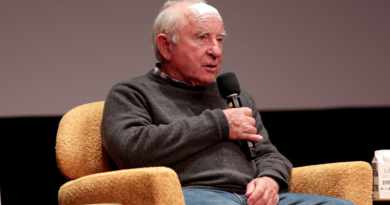Judge gives ‘real life Martha’ green light to sue Netflix for ‘Baby Reindeer’ defamation claim
The woman who claims she was the real-life inspiration for the villain in the hit Netflix series “Baby Reindeer” has gotten the green light from a judge to sue the platform for defamation after stating that Netflix wrongly described the series as “a true story.”
Fiona Harvey filed a lawsuit against Netflix in June, claiming the hit series defamed her by wrongly alleging she was a convicted stalker, leading to extreme psychological and emotional damage. She originally sought up to $170 million in damages.
Harvey also said she was defamed by claims in the story that Martha had stalked a police officer, that she had sexually assaulted Gadd, and that she stalked Gadd by waiting outside his house for up to 16 hours a day.
The lawsuit hinges on Harvey’s argument that she was identified as Martha in “Baby Reindeer.” Creator Richard Gadd, who was the showrunner for “Baby Reindeer” and plays a version of himself in the show, has never publicly stated that the Martha character was based on Harvey.
Netflix had asked for the defamation claim to be dismissed, which the judge denied, but he did dismiss Harvey’s claims for negligence, violation of her publicity rights, and for punitive damages.
In a California court, U.S. district judge Gary Klausner batted down Netflix’s arguments against Harvey’s defamation claim, saying it was reasonable that Harvey could be identified as being the inspiration for the show.
Lawyers for Netflix argued that the story was told from creator Gadd’s perspective and was not factual. The judge rebuffed this claim, given the show labels itself as a “true story” at the beginning of the series. Harvey’s lawyers had previously called this claim “the biggest lie in television history.”
He added that there was a “major difference” between stalking and being convicted of stalking, as well as identifying other apparent exaggerations in the show that Harvey says are untrue.
Netflix’s co-CEO Ted Sarandos has moved to quash the controversy around the factually suspect elements of the hit series.
“We are facilitating storytellers to tell their stories,” Sarandos said at the Royal Television Society conference in September. “Baby Reindeer is his [Gadd’s] story, he told his story, it is not a documentary.”
“There are elements of the story that are dramatized,” said Sarandos. “It is abundantly clear that there is dramatization involved. This debate [about Baby Reindeer’s status as a true story] is not happening anywhere else in the world. Just the UK.”
A representative for Netflix didn’t immediately respond to a request for comment.
‘Baby Reindeer’ fallout
“Baby Reindeer,” which follows the story of comedian Donny Dunn as he navigates an increasingly toxic relationship with his stalker Martha, became a global phenomenon following its release in April.
The series contains several distressing moments, including an incidence of sexual assault by another character, the real-life inspiration for whom has not been identified.
The limited series racked up 84.5 million viewers between its release in April and June this year, making it one of Netflix’s most popular series of all time. The show won six Emmys in September, including Outstanding Limited or Anthology Series and acting awards for Gadd and Jessica Gunning, who plays Martha.
Following Baby Reindeer’s release, internet sleuths began trawling historic social media posts for clues as to the real identity of Martha. They found a tweet sent from Harvey to Gadd in 2014, which contained a reference to “hanging curtains” that was used in the series.
Harvey appeared on Piers Morgan’s YouTube channel in the wake of the TV series’ release to deny the events in the show while claiming she was indeed the inspiration for Martha.
She says she was bombarded with abusive messages in the wake of the discovery of the tweets and struggled to leave the house as a result.




